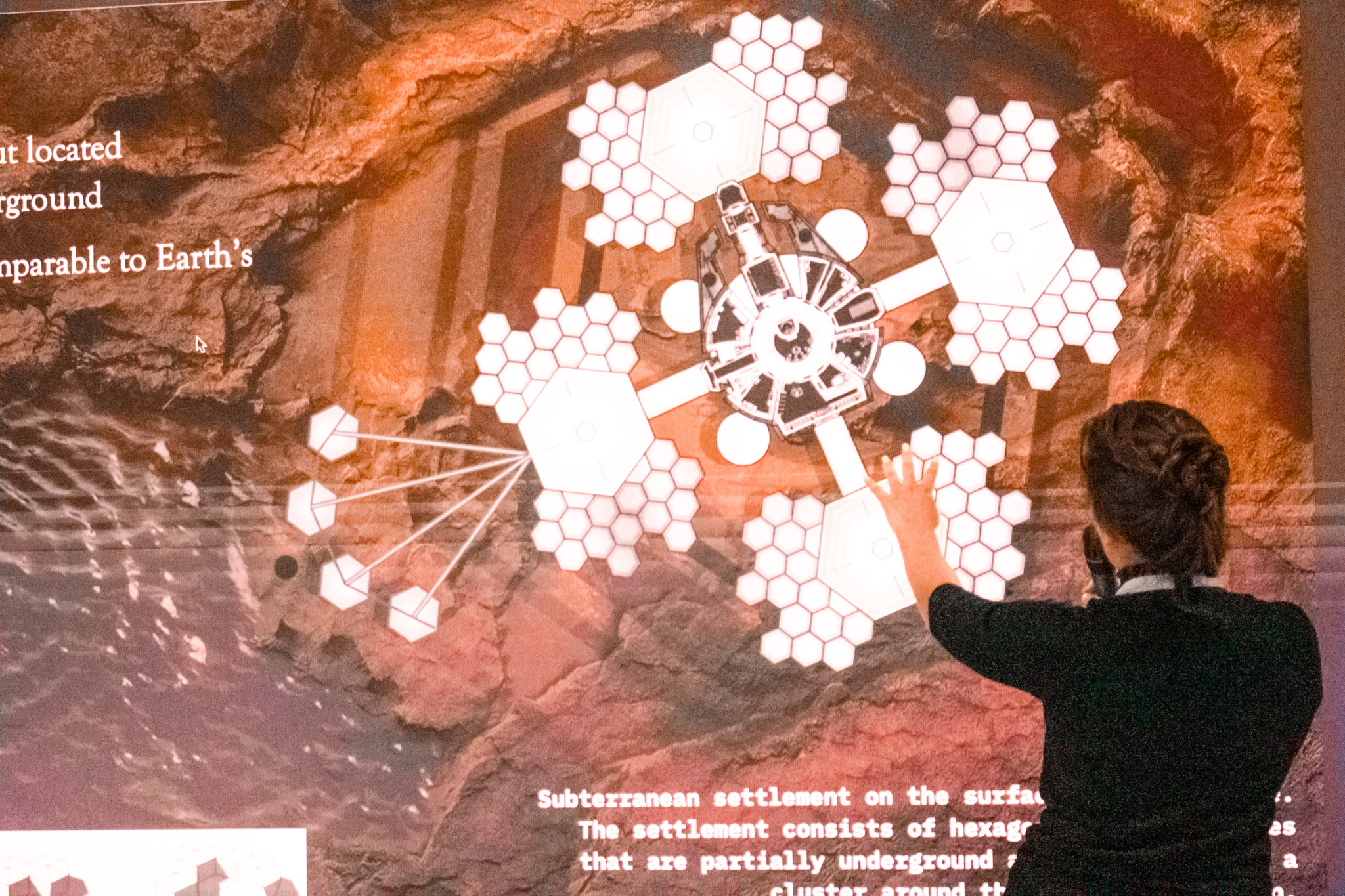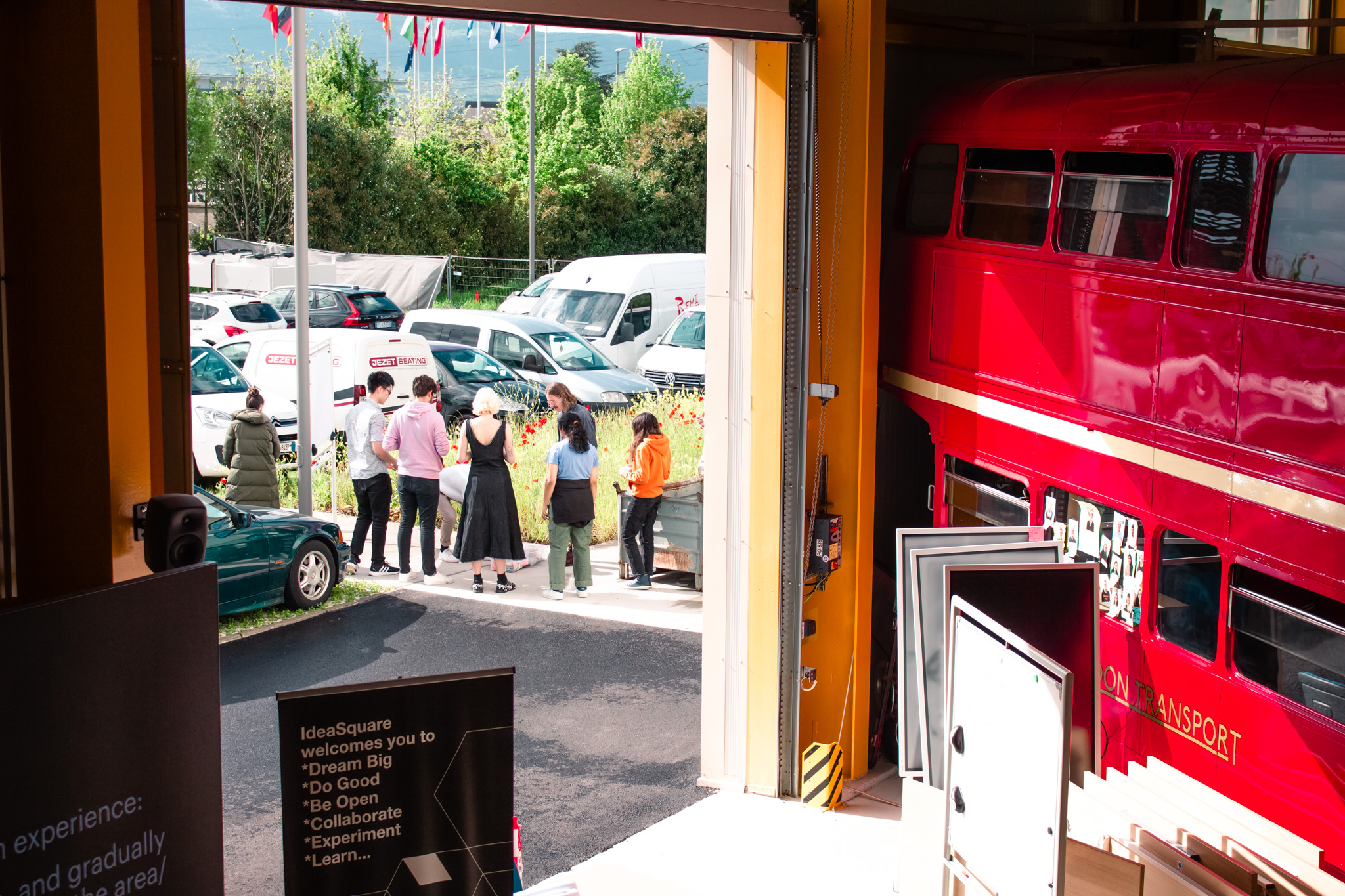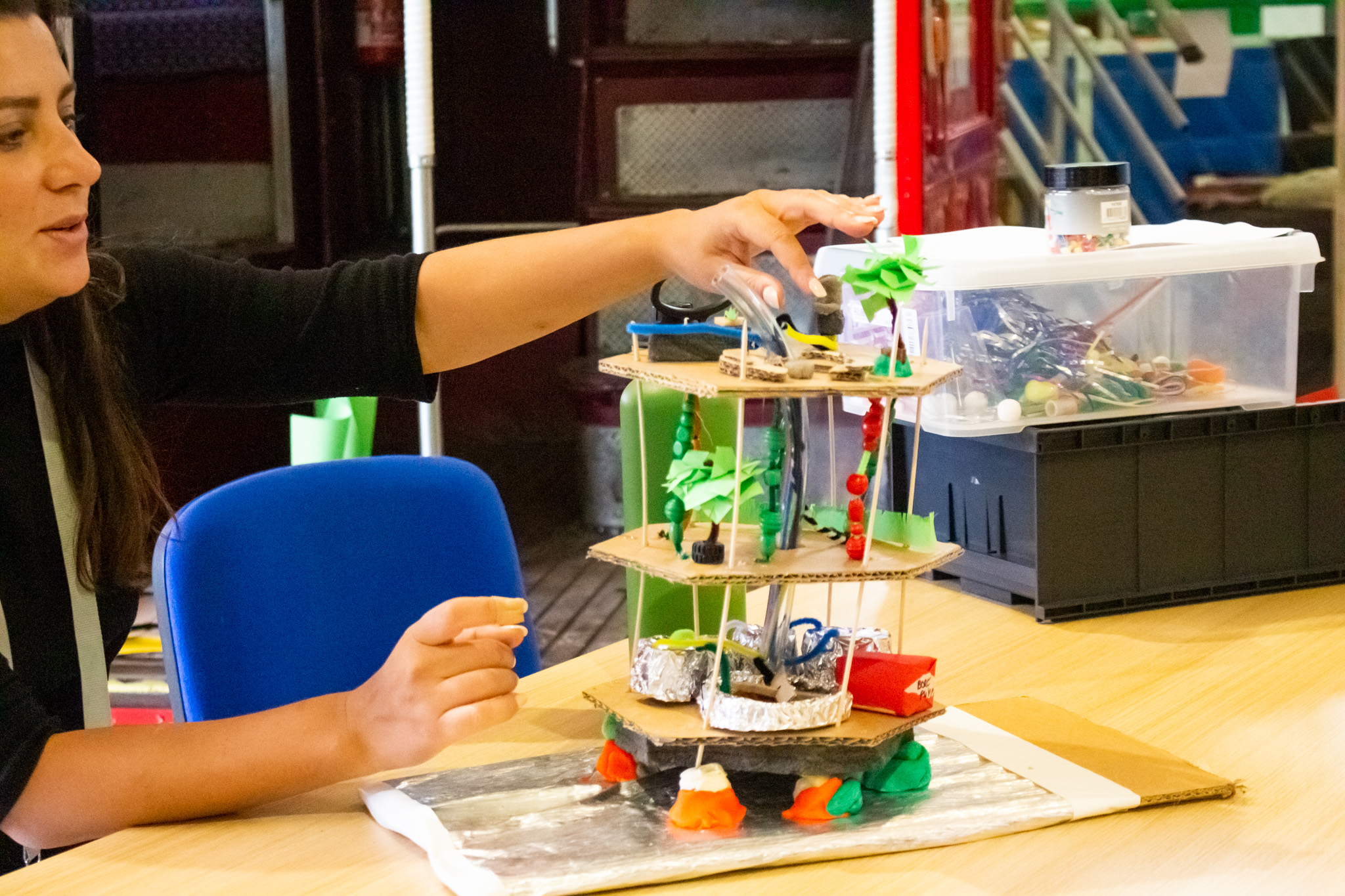Travelling to an exoplanet to learn how to save ours
What if humanity could start everything from scratch – what would we do differently?

As part of steps to further develop the current Challenge Based Innovation (CBI) programme, a two-week pilot took place at IdeaSquare, in collaboration with several university partners and their student teams. With the aim of having in place by 2025 a new CBI offering for a more holistic approach to address Sustainable Development Goals (SDGs) on the planetary level, a very special programme was tested. Cohort participants had to imagine what settling on an exoplanet would look like, in terms of technology, but also of social organisation. In this CBI Terraforming experiment, we are lifting our lenses from Earth to travel to a terrestrial exoplanet to envision how a society might function there, with a focus on access to clean water for all. This includes researching the destination planet, considering who and what to bring, the survival phase at landing, and how to be able to establish a first sustainable settlement on this exoplanet. Then, the lessons learned are applied to our own planet.
In their first week, the participants had to establish on which planet in the TRAPPIST-1 solar system they'll settle. Their focus was to design how to ensure access to clean water for all and create a sustainable water system.

This was a great opportunity to introduce them to innovative methodologies such as Planet Centric Design, Exponential Thinking, but also Decolonizing Design. One of the objectives is to learn how to think in systems. When undertaking such an enormous task as settling on a distant planet, it quickly becomes apparent to the participants how complex and interrelated simple questions can be. For example, “Who do you take with you?” turns into long discussions on ethics, prioritization of skills needed, and ensuring health.
After preparing for the travel, they brainstormed on elements like water filters with algae, water cycles, and more. They chose to select a population aged 18-50 with a collaborative mindset to work in teams including research, agriculture, sanitary, or people and culture, and drafted a constitution for a community-based society.
In their second week, they were coming back to Earth, with the idea of adapting their sustainable systems to Earth's context!
In order to achieve this, they had several principles in mind: adaptation to the environment, community-based shared goals, circularity, understanding the system, having a large diversity of roles, and taking nature as a guide.

On TRAPPIST-1e, waste management was very different from Earth because waste was perceived as a resource, and every initial decision-making process started with circularity in mind. An insight was also that the value of resources was much greater due to the effort required to gain them and the inherent risk of losing them.
To guide them on this journey, they had the chance to interact not only with CERN experts, but also to attend multidisciplinary talks. They participated in a workshop about Decolonising Design by Thomas Jäger, learned about Circular Economy with Carolina Faria, and discussed how to calculate the net impact of their projects with Dr. Dap Hartmann.
These two weeks were a pilot to design a new programme encompassing all the different aspects we need to think of to achieve a more sustainable society. Not only could the participants learn to translate the experience into something valuable to their professional and academic careers, but they also gave valuable feedback to imagine a truly multidisciplinary way of doing innovation.
Dreaming of settling on a new planet is a perfect exercise to understand what a wicked problem looks like and how to find scalable solutions. You soon realise the complexity of relationships every single issue involves, and you become able to look at societal systems in a holistic and comprehensive manner.
Stay tuned to know more about the evolution of this programme!












